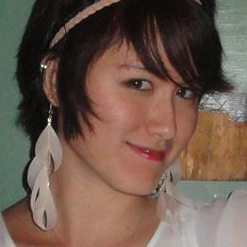
The other day, while marking time in an airport, I stumbled upon an engaging, thought provoking book, “The Happiness Project.” It got me thinking about happiness which is probably the most written about topic next to love. Serious minds have contemplated the subject but what does it all add up to for the average person? The Dalai Lama asserts that every human being has the basis to be happy, to access the warm, compassionate states of mind that bring happiness. I find that thought comforting because it makes what each one of us is striving for seem more readily available and orients us to what really matters. Simply knowing the ‘purpose of life’ is happiness changes our perspective, the lens through which we see the world; how we approach life and the decisions we make. We naturally try to avoid the things that make us unhappy and accumulate the things and experiences that we feel will lead to happiness. But is it really that simple?
When much of the world is plagued by poverty, lack of water and social injustice pursuing personal happiness seems, I don’t know, a little self-absorbed. If I am going to make a quest out of the pursuit of happiness then it has to have a much larger context than mere self-satisfaction.
Happiness or lack thereof, is probably the most dwelt upon subject of the young. If you did a spot check on great minds they all have something to say about it too. Greek philosophers, who I associate with the angst I suffered in math class, spent a lot of time on metaphysical questions. Aristotle said, “Happiness is the meaning and purpose of life, the whole end and aim of human existence.” And Epicuris, no doubt known to his friends as Epic, wrote, “We must exercise ourselves in the things that bring happiness, since, if that be present, we have everything, and, if that be absent, all our actions are directed toward attaining it.”
Centuries later, the timeless quest for happiness, found itself at the very center and heart of a groundbreaking theological work. The Divine Principle opens with the statement, “Every human being is struggling to attain life-long happiness and overcome misfortune.” But what draws me into the study of happiness through the Divine Principle is that the quest for personal happiness it speaks about does not exist in isolation. It is not the self-absorbed “happiness” promoted by materialism or hedonism. The pursuit of happiness that the Divine Principle is talking about embraces the relational quality of happiness grounded in the notion that no-one can be truly happy until others are happy also. The Divine Principle’s author, Rev Sun Myung Moon, takes that a step further when he shares his quest to liberate God from suffering and introduces people to the audacious concept that God’s happiness is at stake in our lives. Our Heavenly Parent needs us as much as we need him and her.
The “living for the sake of others” approach to happiness, a hallmark of Rev. Moon’s teaching, is not a self-centered formulaic solution to unhappiness but a lifestyle orientation that is supported by the latest research. Happy people are healthier, have stronger immune systems and live up to ten years longer than their less happy peers. They tend to be better parents. They are more creative. Organizations with happy employees are more successful. That’s not really surprising when you think about it. Such workers are going to be more innovative and motivated. They will create a more harmonious and positive workplace. It’s important to be happy!
Dr. Howard Cutler validates this in his book, “The Art of Happiness” co-authored with His Holiness the Dalai Lama, “The turning toward happiness as a valid goal and conscious decision to seek happiness in a systematic manner can profoundly change the rest of our lives.” But how does one systematically pursue happiness? Doesn’t that seem a bit contrived and counter-intuitive? We imagine happiness as something that catches us unawares or visits us in fairytale like moments. Cinderella comes to mind. Her happiness was definitely not something she planned! It was then that I stumbled across a refreshing book, “The Happiness Project” by Gretchen Rubin.
I was drawn into Gretchen’s world because she is so very real and likeable. Like so many of us she isn’t unhappy per se and she too worried that she might be viewed as a little self-absorbed when she began her project, but she realized she didn’t want to come to the end of her life and feel, “How happy I used to be then, if only I’d realized it.” And so began her quest to discipline herself to find gratitude in an ordinary day. She wanted to change the lens through which she viewed everything. She grasped two essential things, “I’m not as happy as I could be, and my life isn’t going to change unless I make it change.”
She decided to take on the quest for happiness in a unique way. Inspired by Ben Franklin, she sat down and created a chart, a kind of calendar on which she could record all her resolutions and give herself a daily check or X. She generated a list of areas to work on to become happier and from that distilled her “12 Commandments” to tackle – one for each month of the year. They included, “Be Gretchen; No calculation; Act the way I want to feel; Be Polite and fair,” to name but a few. She didn’t want to reject her life – I liked that. She just wanted to change her life without changing her life by finding more happiness in her own “kitchen!” It’s less about finding happiness in some idealized faraway place or future and more about your perspective on what’s in front of you.
all her resolutions and give herself a daily check or X. She generated a list of areas to work on to become happier and from that distilled her “12 Commandments” to tackle – one for each month of the year. They included, “Be Gretchen; No calculation; Act the way I want to feel; Be Polite and fair,” to name but a few. She didn’t want to reject her life – I liked that. She just wanted to change her life without changing her life by finding more happiness in her own “kitchen!” It’s less about finding happiness in some idealized faraway place or future and more about your perspective on what’s in front of you.
The book is her story, crammed with amusing ‘lessons learned’ and practical tips, but more importantly Gretchen invites you to create your own story. Her website www.happiness-project.com has tools and links, even local communities so that you can create your own unique project. I offer you a challenge to stimulate your mind in new ways and discover a happier you!












